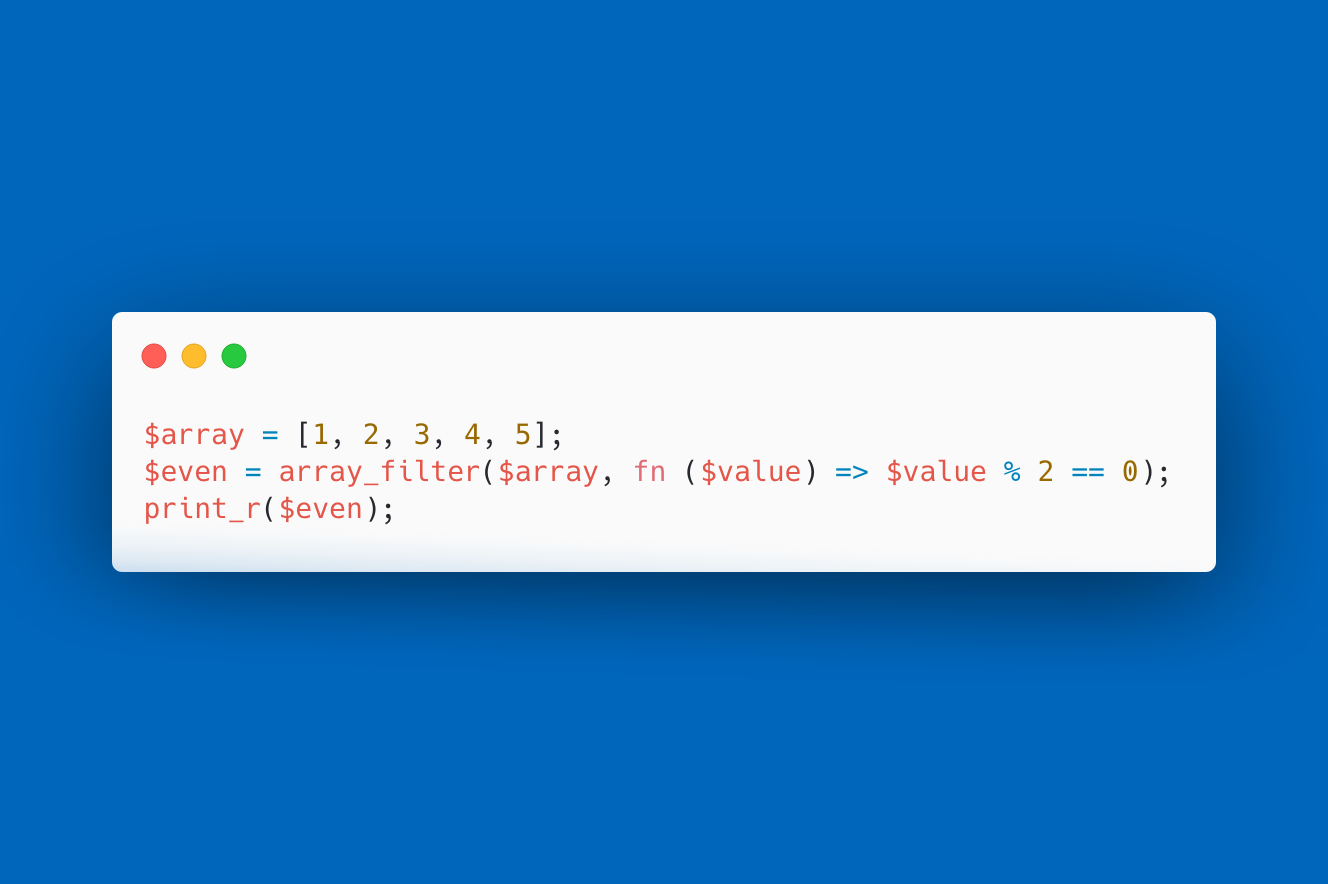Hey there, PHP enthusiasts! Ever found yourself swimming in a sea of data, needing to sift through and find only the elements that meet your criteria? Well, PHP’s array_filter() function is your lifesaver here! It’s a powerful tool that filters elements of an array using a callable, like a closure, to make your data handling a breeze.
Understanding the Basics
At its core, array_filter() is all about simplicity. It takes each array element and runs it through a callback function. If the function gives a thumbs up (returns true), that element gets included in the resulting array. This nifty function is particularly useful when you need to filter through data and keep only those elements that meet certain conditions.
Imagine you have an array like this:
<?php
$array = [1, 2, 3, 4, 5];
$even = array_filter($array, fn ($value) => $value % 2 == 0);
print_r($even);In this example, array_filter() smartly picks out the even numbers, giving you a neat array of just those.
Diving Deeper
But wait, there’s more! array_filter() isn’t just for simple tasks. It can handle more complex scenarios too. For instance, you can use it to filter an array of objects based on their properties. And guess what? It works wonders with associative arrays as well, letting you filter by both keys and values.
Filtering an associative array by key:
<?php
$fruits = ['apple' => 3, 'banana' => 0, 'cherry' => 5, 'date' => 0];
$result = array_filter($fruits, function($key) {
return $key != 'banana'; // Exclude 'banana'
}, ARRAY_FILTER_USE_KEY);
// $result will contain ['apple' => 3, 'cherry' => 5, 'date' => 0]Filtering an associative array by both key and value:
<?php
$products = ['apple' => 2.5, 'banana' => 1.0, 'cherry' => 3.0, 'date' => 2.0];
$result = array_filter($products, function($value, $key) {
return $key != 'banana' && $value > 2.0; // Exclude 'banana' and prices less than 2.0
}, ARRAY_FILTER_USE_BOTH);
// $result will contain ['cherry' => 3.0]
Diving even Deeper
In this example, we have an array of arrays ($data), and we use array_filter() to filter the array based on the condition that the population value should be greater than 500 million. The result is stored in the $countries variable, which will contain the filtered array of countries with populations exceeding 500 million.
<?php
$data = [
[
'country' => 'China',
'population' => 1409517397,
],
[
'country' => 'India',
'population' => 1339180127,
],
[
'country' => 'USA',
'population' => 324459463,
],
[
'country' => 'Indonesia',
'population' => 263991379,
]
];
// Our task: Get a list of countries with a population exceeding 500 million.
$countries = array_filter($data, function($item) {
return $item['population'] > 500000000;
});
// $countries will contain:
// [
// [
// 'country' => 'China',
// 'population' => 1409517397,
// ],
// [
// 'country' => 'India',
// 'population' => 1339180127,
// ]
// ]
Common Pitfalls to Avoid
Now, while array_filter() is incredibly helpful, there are a couple of pitfalls you should be aware of. Firstly, ensure your callback function always returns true or false. If it doesn’t, you might end up with an empty array, which is like throwing a party where no one shows up!
Also, remember that array_filter() preserves array keys. This means you could end up with unexpected gaps in your numeric array indexes, which can be a bit of a surprise if you’re not expecting it.
In conclusion, array_filter() in PHP is like having a magic wand for your arrays, helping you keep only what you need and ditch the rest. It’s simple, versatile, and incredibly useful. Happy coding and filtering!

